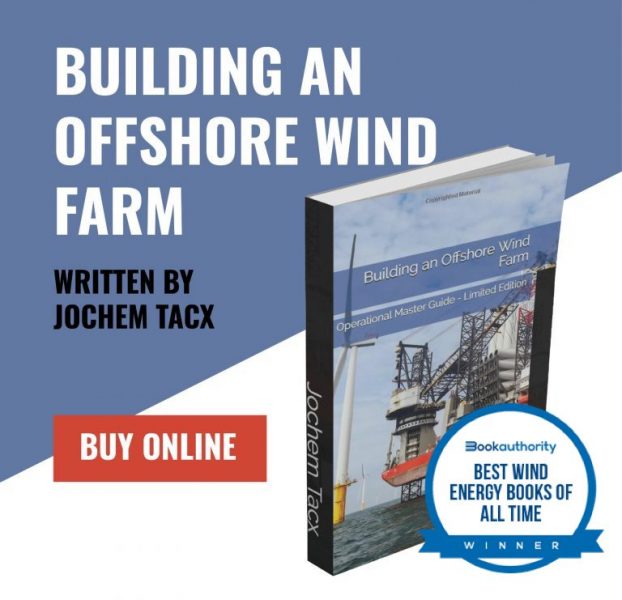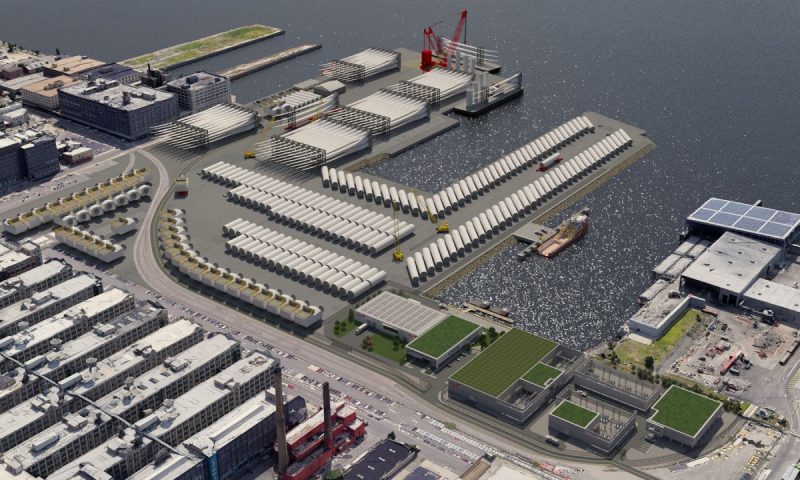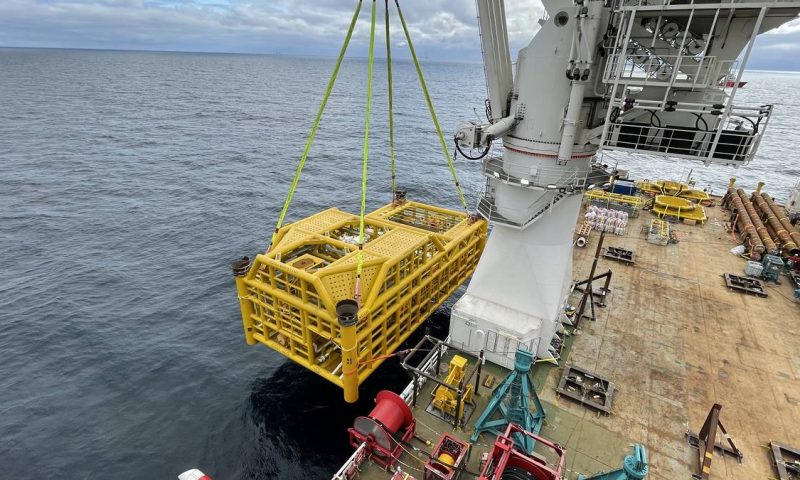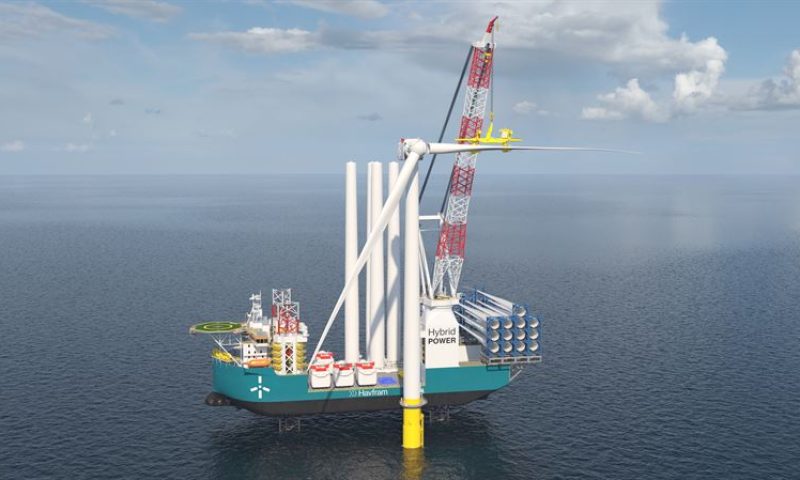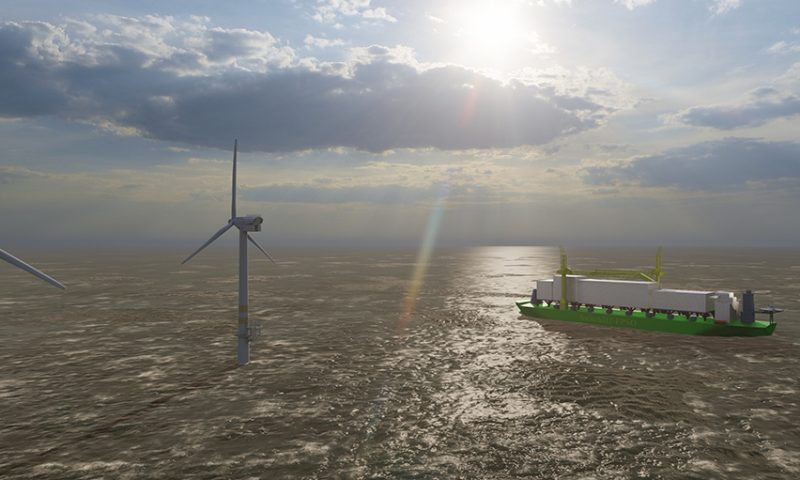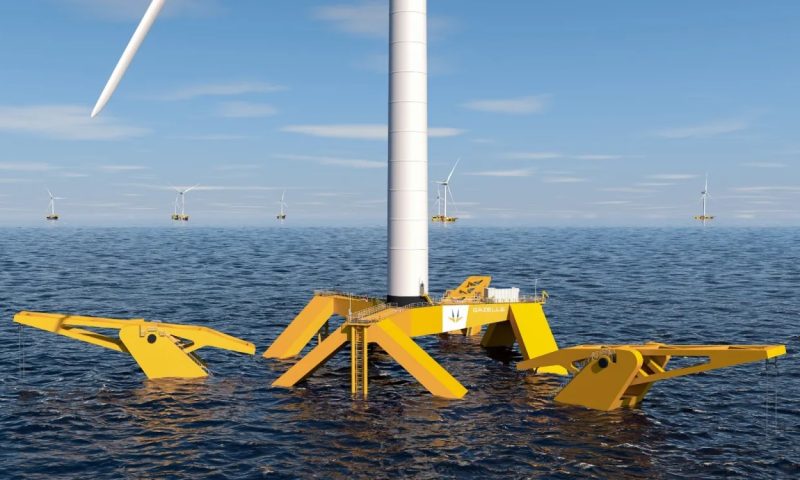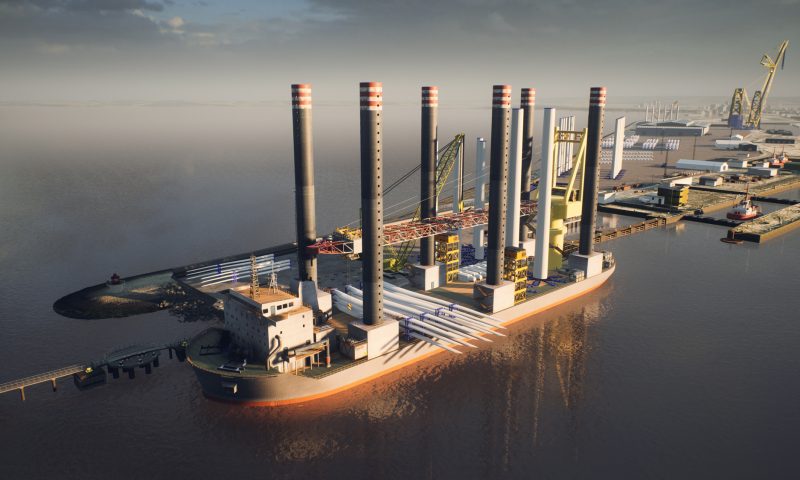
bp and Partner EnBW Submit Transformational Bid for ScotWind Lease
Potential £10 billion investments would make Scotland a global leader in offshore wind and accelerate its energy transition
bp and EnBW submitted their bid for offshore wind acreage in the ScotWind leasing round.
The consortium has applied for a lease area off the east coast of Scotland that could support offshore wind projects with 2.9 gigawatts (GW) generating capacity. But the bid seeks to go far beyond developing wind power and aims to accelerate Scotland’s entire energy transition – from producing clean power to using it in new industries.
Transformational bid
A successful bid would bring multi-billion pound investments into Scottish offshore wind projects and supporting infrastructure, including ports, harbours and shipyards. bp also would use its unique integrated business model to invest in net zero industries, including green hydrogen production and significantly accelerating the expansion of Scotland’s EV charging network.
New global offshore wind centre of excellence
bp would also make Aberdeen its global offshore wind centre of excellence, supporting its growing portfolio of offshore wind interests across the world.
This further supports Scotland becoming a global leader in offshore wind, developing leading sector capabilities that are exportable worldwide.
Supporting green jobs in Scotland
bp, EnBW and Forth Ports have already signed a Heads of Terms agreement with a financial commitment that will supplement Forth Ports’ £40million investment in their planned Renewables Hub at the Port of Leith.
It represents a significant contribution to the development of Scotland’s offshore renewables infrastructure. This will create new opportunities and long term, high quality jobs, supporting Scotland’s economic recovery and energy transition plans and the achievement of the country’s net zero carbon emissions targets.
bp and EnBW would also support and invest in a new skills capability accelerator developed by energy consultancy Xodus which will provide on-the-job project experience and formal learning. The five-year, multi-million financial commitment includes creating entry-level energy transition roles, and the reskilling of hundreds of oil and gas workers, graduates and technicians with renewable sector capabilities.
Together, these investments would support thousands of jobs in the Scottish energy sector and supply chain, and develop new energy transition jobs, skills and capabilities.
Dev Sanyal, bp’s executive vice president for gas and low carbon, said: “Through our bid we aim to do far more than only develop offshore wind – we believe it can help fuel Scotland’s wider energy transition. We want to harness the clean power from Scotland’s offshore wind and use our capabilities as an integrated energy company to accelerate the country’s EV charging network, build its hydrogen offering and strengthen its supporting infrastructure, including ports and harbours.
“This will all take the right skills and abilities. The bid would build on Scotland’s deep experience in offshore oil and gas, equipping its workforce and supply chain with renewable capabilities, including creating apprenticeships, and supporting thousands of jobs. All of this is aimed at helping generate community wealth and creating a just transition in which people and communities do not get left behind.
“bp has proudly been in Scotland for a century. We believe this bid has the power to support a resilient clean energy future for Scotland for the next century and beyond.”
Dr. Georg Stamatelopoulos, chief operating officer of generation and trading at EnBW said: “Our bid combines our established competence in offshore wind and bp’s leading North Sea experience. EnBW will bring its engineering know-how and track record as one of the leading offshore wind developers into the Scottish market.
“We are very keen to successfully further develop this project. Last year, we completed the largest German offshore wind project and are very confident in dealing with the complexity of this industry. With this background, we are looking forward to supporting a clean energy future for Scotland.”
Seeking Scottish suppliers
In readiness for a successful award, and to engage the local supply chain, bp and EnBW have launched a bespoke online portal for the Scottish engineering and supply sector to take part in the developments.
Companies based in Scotland, with significant operations in Scotland, or that have plans to relocate their base or operations to Scotland are encouraged to register their interest for future opportunities.
bp has a long and proud history in Scotland, stretching back 100 years. It is a pioneer in the North Sea oil and gas sector, an industry that today supports thousands of jobs and has invested billions in the Scottish economy.
Global expertise
Earlier this year, bp and EnBW entered the UK’s offshore wind power sector, forming a 50-50 joint venture to jointly develop and operate two leases in the Irish Sea that offer a combined potential generating capacity of 3GW. bp also has a partnership with Equinor to develop offshore wind projects in the US, including projects with a planned potential 4.4GW generating capacity. Onshore in the US, bp operates nine wind assets across the country and has a gross generating capacity of 1.7GW.
EnBW is one of the largest energy supply companies in Germany and Europe, with more than 10 years of experience in designing, constructing, servicing and operating wind assets. It currently has onshore wind assets in Germany, France and Sweden and operates four offshore wind assets in the German Baltic Sea and North Sea. In 2020, EnBW started-up Germany’s largest offshore wind project, in the North Sea. EnBW plans to build its He Dreiht offshore wind farm with 900MW, Germany’s first subsidy-free offshore windfarm. It is among the biggest currently planned offshore wind power projects in Europe and is scheduled to go into operation in 2025.
Rapidly growing its renewables business is core to bp’s strategy – by 2030 bp aims to have developed around 50GW of net renewable generating capacity up from 3.3GW in 2020. The strategy also includes plans to increase bp’s annual low carbon investment 10-fold, to around $5 billion a year, and also reducing oil and gas production by around 40% from 2019 to 2030.

